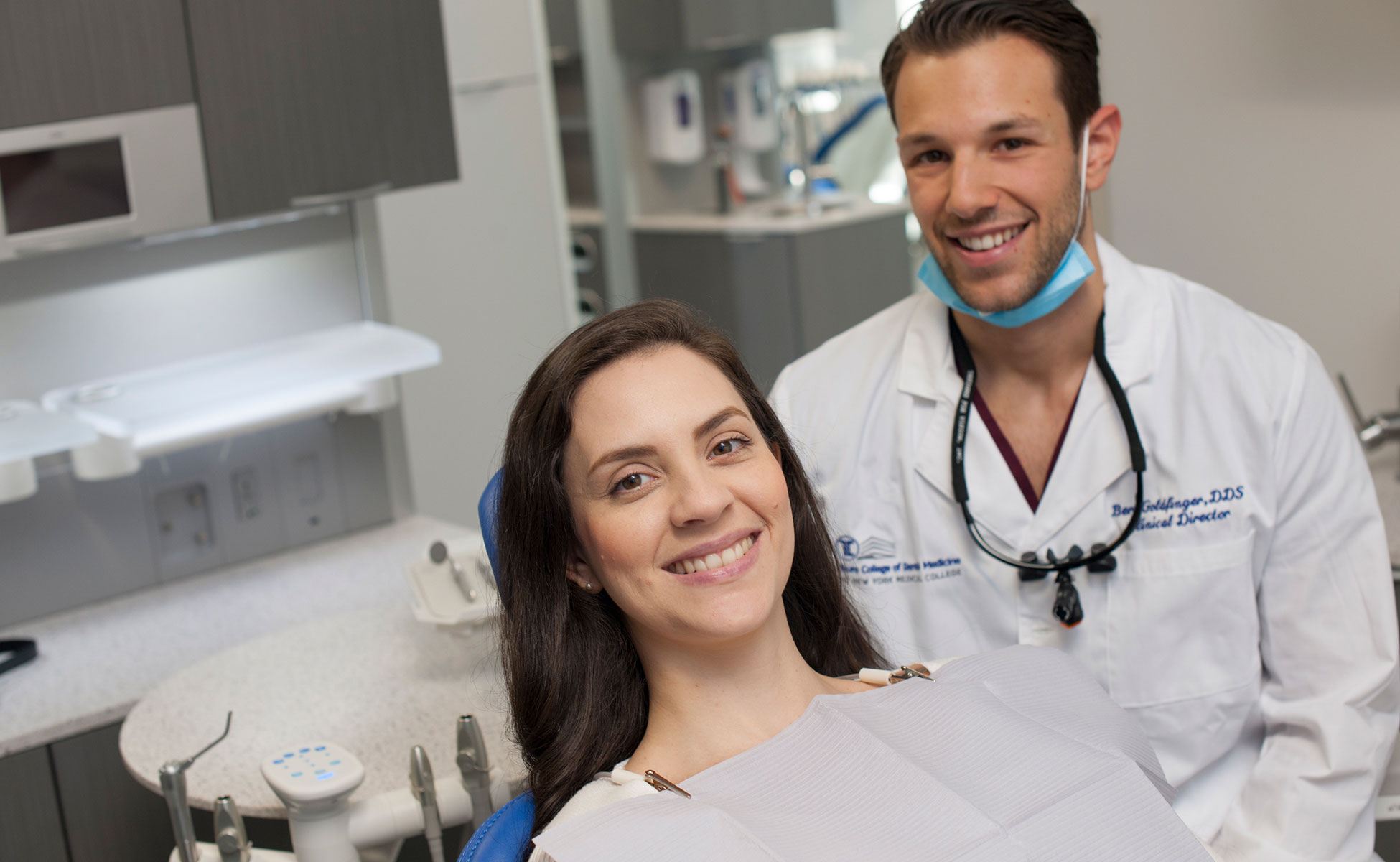At Touro Dental Health NY, our endodontists focus on preserving your natural teeth. Whether you have tooth pain, infection, or damage, our team is here to restore your oral health and comfort. We focus on compassionate care and use advanced tech to achieve the best outcomes.
Our dental students are under the supervision of experienced endodontic practitioners. We also have an exceptional faculty-to-patient ratio. Our large facility allows for a relatively private treatment experience. Reach out for a consultation if you’re interested in receiving some of the best root canal treatment in New York state.
What Does an Endodontist Do?
In simple terms, an endodontist works to save your natural teeth, instead of extracting teeth. Endodontists examine your inner tooth, including your tooth pulp and root, and treat decaying or damaged tissue.
Through decay or injury, your inner tooth can become infected. This can lead to pain, swelling, or a dental abscess. Endodontists do their best to treat and hopefully save a tooth. The most common treatment performed by endodontists is a root canal. This involves removing infected tissue from the inside of your tooth.
When Should I See an Endodontist?
The first sign a patient may need to visit an endodontist is tooth pain or swelling. Radiographs (X-rays) may also show internal damage to a tooth before any symptoms appear.
A dentist often refers patients to an endodontist when they have a complex case involving the tooth’s inner tissue. If the tooth is damaged or at risk of becoming infected, it’s important to see an endodontist. Tooth damage, decay or infection can have different causes, such as a deep cavity or physical trauma.
It’s recommended for an endodontist to address your issue early, as infections can spread to other parts of the mouth. Strong pain, swelling or infection should never be left untreated.
Your First Visit
Here at Touro, we do a comprehensive oral exam during your first visit. We have every kind of dental specialist under one roof, including endodontists. This means that if we notice anything with your inner tooth that might be concerning, one of our endodontists can do a detailed evaluation during a follow up visit and recommend next steps to treat your tooth. We also have an emergency clinic for the most urgent cases.
Common Endodontic Procedures
While root canals are most common, endodontists specialize in any procedure that involves your tooth’s inner tissues, such as the pulp and root. “Pulp” refers to blood vessels, nerves, and connective tissue. The “root” is the portion of your tooth below the gum line.
Root Canal
When a tooth becomes infected or damaged, patients normally have an option to either remove the tooth or get a root canal. A root canal is usually preferred, as it saves your natural tooth. First, the endodontist removes damaged tissue, including the nerve. After disinfecting the inside of the tooth, a special material is used to fill the root. After the tooth is sealed with a filling, a crown is often added, depending on how damaged the tooth is.
Apicoectomy
An apicoectomy is a surgical procedure used to treat very damaged teeth. This minor surgery involves making a small opening in the bone on the tip of the root to remove infected tissue. This procedure involves two appointments, to monitor gum and bone healing.
Cracked Tooth Treatment
As there are many different situations where a tooth can become cracked and different types of damage, treatment can vary for each patient. Endodontists are experts at addressing pain and saving teeth, so they assess the specific type of fracture and determine the best procedure. Even without pain, cracked teeth need to be addressed quickly to prevent bacteria from entering the tooth and causing an infection.
What's the Difference Between a Dentist and Endodontist?
An endodontist is a dentist with additional training in treating the pulp and root of the tooth. Only around 3% of dentists are endodontists. While general dentists can perform some procedures like root canals, endodontists have more experience in this area and often perform 25 root canals per week. Dentists often refer patients to an endodontist for more complex cases.
Our Cutting-Edge Endodontic Technology
Touro is on the cutting-edge of digital dentistry and uses the latest technology for diagnosis and treatment. We use state-of-the-art technology like a CBCT 3D imaging machine. This allows us to get a 3D view of the entire jaw, roots, and teeth, before any procedure is performed. This is important to provide the safest and most accurate care. We also use all standard instruments for performing endodontic procedures, such as an operating microscope and the latest file system to disinfect root canals.
At Touro, we have board certified radiologists on staff that are available to analyze radiographs. This is especially helpful if our endodontist needs an expert radiological assessment for a very complex case.


